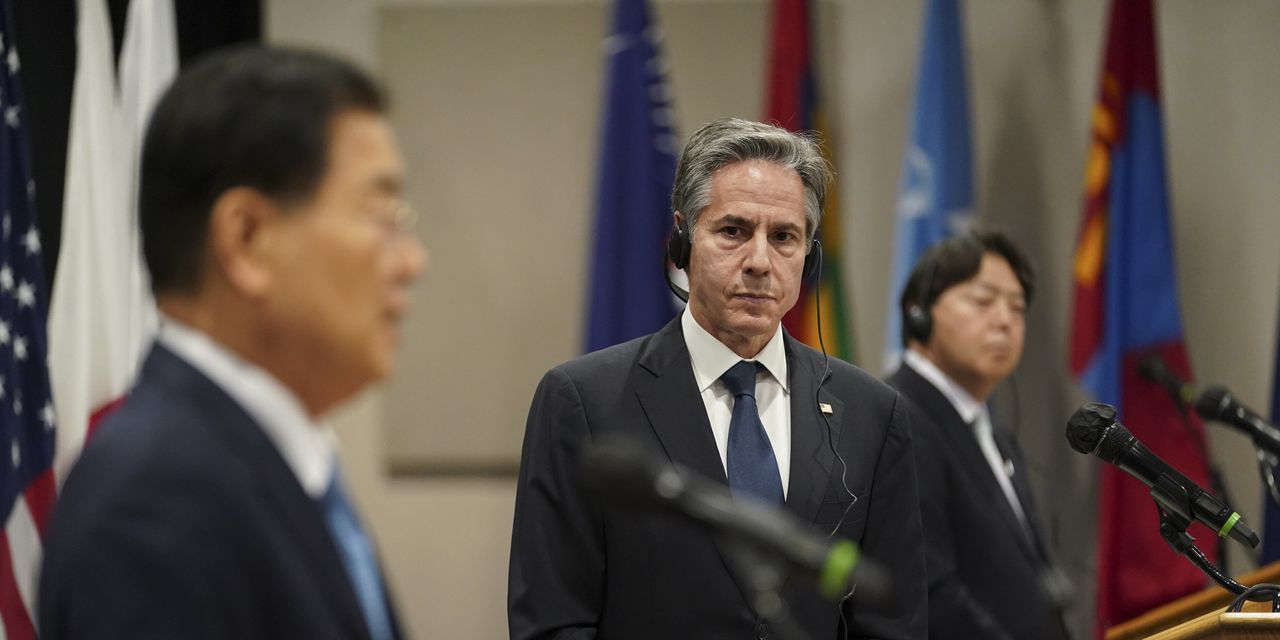
HONOLULU—The U.S., Japan and South Korea will strengthen their joint efforts to deter North Korea’s missile activity and nuclear ambitions, while continuing to push for diplomatic engagement with Pyongyang, the allies’ senior diplomats said Saturday.
“It is clear to all of us that the DPRK is in a phase of provocation,” Secretary of State Antony Blinken said, using shorthand for the country’s formal name, the Democratic People’s Republic of Korea. “We condemn the recent missile launches, violations of U.N. Security Council resolutions.”
North Korea conducted seven weapons tests in the month of January alone—more than it had done all of last year. That includes an intermediate-range ballistic missile on Jan. 30, the most powerful weapon the Kim Jong Un regime has shown off in years. Pyongyang has signaled it could consider restarting nuclear tests or long-range missile launches.
U.S. officials say that the administration’s approach is the right one, despite North Korea’s escalatory posture. The Biden administration has repeatedly offered to meet Pyongyang without preconditions at any time and anywhere. But North Korea has remained disinterested. The two sides haven’t held formal talks in more than two years.
Pointing to sanctions imposed in January against eight North Korea-linked individuals and entities, Mr. Blinken said the U.S. “will continue to hold the DPRK accountable, even as we seek to engage in diplomacy.”
South Korean Foreign Minister Chung Eui-yong said the allies had reached a consensus on their condemnation of the tests, the need to deter further weapons activity by Pyongyang, and a push for diplomacy. He said continuing disagreement between South Korea and Japan over control of disputed islands and historical concerns wouldn’t affect their cooperation on North Korea.
“We are absolutely united in our approach, in our determination,” Mr. Blinken said. “And that unity of purpose is, I think, vitally important to dealing with the challenge posed by the DPRK, and also pursuing a more hopeful future.”
Japanese Foreign Minister Yoshimasa Hayashi said the three officials had held “a very fruitful discussion” on the challenges posed by North Korea.
While Mr. Chung said the allies had discussed specific measures with respect to North Korea, he declined to disclose any of them.
The Biden administration’s new Indo-Pacific strategy, released Friday, underscores the conviction that “more than any other part of the world, what happens in this region is going to shape the lives of Americans and people around the world,” Mr. Blinken said.
Write to Courtney McBride at [email protected]
Copyright ©2022 Dow Jones & Company, Inc. All Rights Reserved. 87990cbe856818d5eddac44c7b1cdeb8








